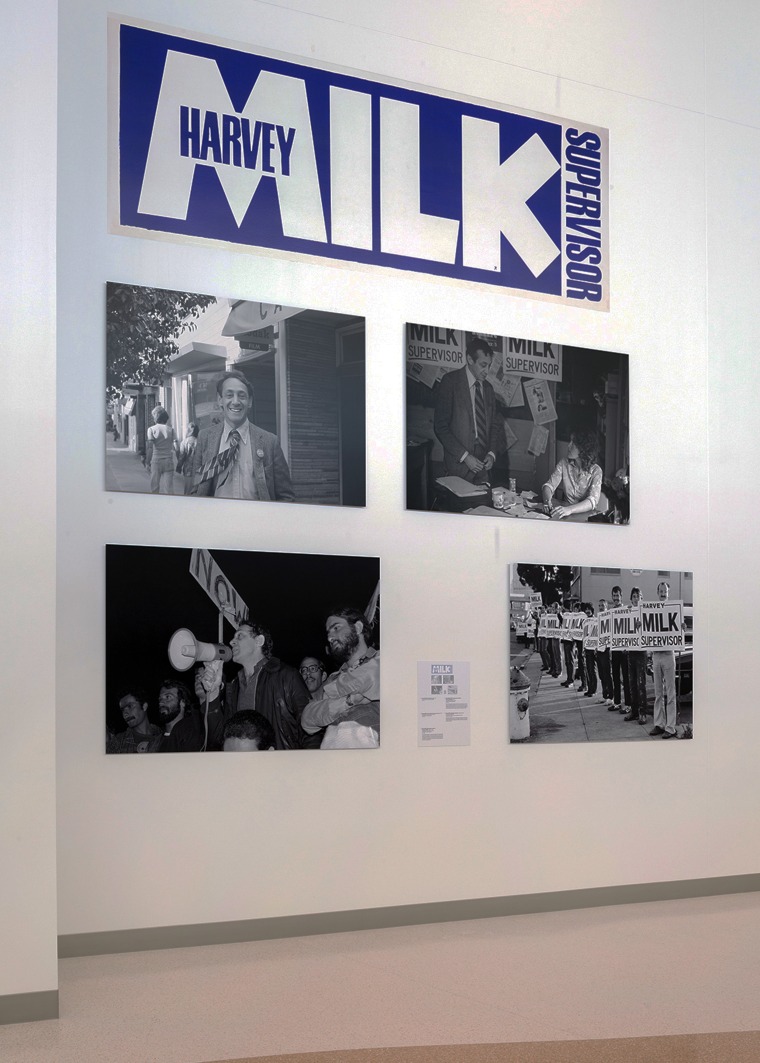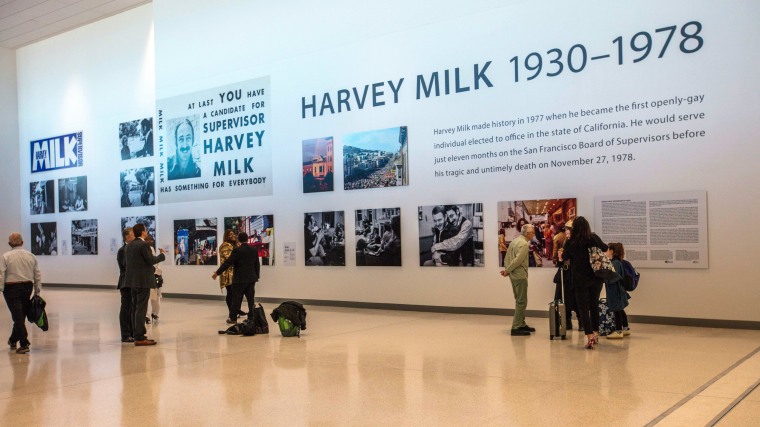In the two weeks in which hundreds of thousands mobilized to oust Puerto Rico Gov. Ricardo Rosselló, the island’s LGBTQ community was on the front lines.
They shared in the outcry after the July 10 federal corruption arrests of members of the governor’s administration, and joined as the movement swelled when a private chat between Rosselló and his closest allies leaked. The chats revealed discriminatory attitudes — including homophobia, transphobia, misogyny, xenophobia and fat-shaming — and a callous indifference for the people of Puerto Rico, including the thousands who died after Hurricane Maria.
And while the people of Puerto Rico were successful in ousting Rosselló, many say the fight for a better quality of life for Puerto Ricans — including its lesbian, gay, bisexual, transgender and queer residents — continues.
Related
NEWS
Multiple LGBTQ people in Puerto Rico told NBC News that the leaked chat’s contents — including the homophobic and transphobic remarks — were unsurprising. Instead, they said it validated their widespread suspicions of government corruption, especially post-Maria, as well as the anti-LGBTQ attitudes of lawmakers.
Rainbow flags were waved at virtually every demonstration, including one wielded by openly gay Puerto Rican pop star Ricky Martin at Monday’s national strike, which drew an estimated 1 million people who blocked a major San Juan expressway.
Martin was the subject of homophobic jokes in the leaked chats, which were written by former Puerto Rico chief financial officer Christian Sobrino. Throughout the effort, Martin has been an especially outspoken leader in calling for Rosselló’s resignation, lambasting him for “unforgivable” offenses. On social media, he rallied fellow Puerto Ricans to join the national strike, as well as a July 17 march from the Capitol to the governor’s mansion, and continually expressed solidarity with and gratitude for everyone involved.
“Puerto Rico, we did it… We just wrote an important page in history,” Martin wrote on Instagram following Rosselló’s resignation.“We rescued our island… We did it peacefully, without weapons… Now, let’s lead by example.”
Prominent Puerto Rican trans activist Ivana Fred spoke at Monday’s strike. She said the crowd gathered to listen was predominantly heterosexual, cisgender people.
“There was no booing or anything,” she said. “Instead, there was support. It’s clear that change is happening.”
Related
NBC OUT
While LGBTQ people in Puerto Rico say the island is still plagued by misogyny, homophobia and transphobia, many activists, including Fred, see this massive movement as an opportunity for real change.
“These protests are every day growing stronger among the trans community,” Fred said, adding that at Monday’s massive strike, she saw “so many flags of different identities, like nonbinary people.”
“That fills me with pride,” she said.
Over the past several years, LGBTQ people in Puerto Rico have gained a number of rights, including same-sex marriage in 2015 (through the U.S. Supreme Court’s Obergefell v. Hodges decision) and transgender name changes on driver’s licenses just last year. However, advocates say the work is far from over to ensure full equality.
Last month, which was LGBTQ Pride Month, a bill that would have allowed government employees to deny services to LGBTQ people based on religious objections nearly became law.
While Rosselló ultimately demanded the bill be shelved, he’s the one who pushed its creation in the first place.
Here again, Martin was one of the leading voices against the bill,using his international clout to slam the proposed legislation.
There’s also little information about anti-LGBTQ hate crimes, as Puerto Rico’s police force does not keep track of these bias incidents. The lack of statistics makes addressing the issue of anti-LGBTQ violence significantly more difficult, according to advocates.
A number of advocates, including drag performer Pipiotah Lakoa, 28, are calling for others, in addition to Rosselló, to leave office.
“There’s a lot of people in power that have to get out,” Lakoa said, specifically naming Senate President Thomas Rivera Schatz and House Rep. María Milagros Charbonier, both of whom have adamantly supported or spearheaded anti-LGBTQ legislation in the past. The latter co-authored the failed religious liberty bill, which the former supported. Schatz also supported Rosselló’s removal of LGBTQ-inclusive gender education and school uniform use based on gender identity from public schools, a change which LGBTQ and feminist organizations say is to the detriment of students.
“These are people who don’t contribute to anything but their own benefit and power, their own profit,” Lakoa said of Schatz and Charbonier. “They don’t contribute to Puerto Rico.”
Lakoa, who is part of a queer collective formed in response to the leaked chats called Haus of Resistance, said the leaked comments “were the confirmation that the people who are in power shouldn’t be there.”
Related
NBC OUT
Fred said recent pro-LGBTQ government efforts made during Pride Month — like covering the governor’s mansion with rainbow-colored lights and having the island’s first lady Beatriz Rosselló dedicate a sculpture to the LGBTQ community — are empty gestures meant to save face.
“We need more than a statue or something that represents us with colors,” Fred said. “I need stability, adequate services, education and safe spaces where I can be as a citizen without having to explain myself.”
There is even an entity within Rosselló’s administration, which created by his own executive order in 2017, specifically intended to address LGBTQ issues. However, the entity’s official Facebook pageand website do not address the recent controversy.
Fred said she has participated in pro-community events organized by Rosselló’s administration, and in the name of change, has assisted. Now, however, she said she feels deceived.
“What’s the point of being bringing this message, participating in events, when the reality is that they’re hypocrites?,” she lamented.
Despite Rosselló’s resignation, Fred said she will “keep fighting” for more legal protections for the LGBTQ community, and to get people to positions in power who “really want to see change.”
“Today I rest, and tomorrow I’ll be back again,” she said.”I’ll go to San Juan or anywhere else I need to protest. We have to make our voices heard.”
Lakoa also vowed to keep pushing for change, namely a change in Puerto Rico’s leadership. “If the way of doing it is protesting every single day,” she said, “then we will have to do it.”



